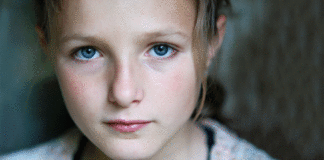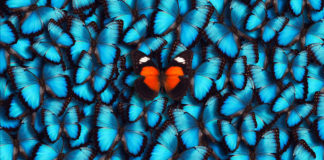Against the current
Over the last few decades, the picture of family life has undergone dramatic changes. The pervasiveness and normalization of divorce are just two of these changes.
Reviving compassion | What not to say to someone who is suffering
Although grief is a universal experience, we respond differently to its onslaught, so it's no wonder that words meant to comfort often add more suffering to an already heavy burden.
Happiness left behind
“A calm and modest life brings more happiness than the pursuit of success combined with constant restlessness.”
Everyone goes through a midlife crisis. True or false?
Up until she was 49 years old, Sue Shellenbarger had been happy with her life. She had a nice home in Oregon, USA, and a good job as the Wall Street Journal's work and family columnist. However, in the space of just two years, she had divorced her husband, emptied out her bank account, and developed a real passion for adventure that landed...
The slalom between regrets and wrong estimates
In October 2012, Forbes magazine published a list of the top 25 biggest regrets people have. According to the magazine, the most significant regrets are those concerning relationships with family members and friends, regrets concerning oneself, and career regrets.
Journal entry
I remember precisely the moment and the place where I realized that I was free to choose what kind of person I want to be. However, this construction requires courage, suitable materials and the perseverance of not leaving the project in ruins when there are deviations from the plan.
If you were in their shoes, you’d probably help yourself
"A friend in need is a friend indeed. Be that as it may, near is my shirt, but nearer is my skin." Is this an outdated saying, or is it still relevant? To whom, when, and how are we prepared to offer help?
When all direction is gone | How to survive adultery
Henri Nouwen once wrote about some trapeze artists who became his friends, emphasising the perfect synchronicity between them and the total trust that the one who jumps has when he lets go of the trapeze and remains in the air for a second, waiting to be caught by his teammate. But what if, at the last moment, when it is too late to...
Cures for loneliness
We live in a time in history when we seem to be connected in every way possible. It seems as if there are few, if any, who have no one to socialize with.
Fragments of light in the dark
When it was close, when I first saw its truly hideous face, I realised that I would never get used to it. And, no matter how hard I tried, no matter how much hope I tried to gather, I found nothing bright or inspiring about death. I know I will never find such a brightness, because it doesn't exist. But I saw the...
How to embrace change without changing who we are
Change is the only constant in life, especially the kind that comes unexpectedly and makes us believe that we cannot give in to it without giving up on ourselves, or turning into something we are not.
Never enough likes
The American Economic Review recently published the results of the largest randomized study ever conducted to measure the impact on the quality of life that deactivation ones Facebook account might have.
In life, you have to take everything as it comes and have no regrets. True or false?
He had played the lottery for years, using the same numbers every time. But on the one day that he forgot to buy a ticket, the draw revealed the winning numbers to be exactly his "lucky" numbers.
The price is right: “For who makes you different from anyone else?” (part 2)
Can the thinking of a single philosopher be so influential as to change the fundamental values of a society and lead to tremors of transcontinental proportions, like the economic crisis that began in 2007? Could Ayn Rand's philosophy be the almost-imperceptible reason for transforming the United States, as Levine puts it, into a "selfish nation"?
Love is in the little things
A famous saying asserts that the devil is in the details—in the small things we often deem unimportant. But life revolves around the little things. They take up most of our time, betray our vices and virtues, reveal our limits and courage, and divulge our preferences and dislikes. It is in the trivial moments that we are the most authentic: when we eagerly...


























